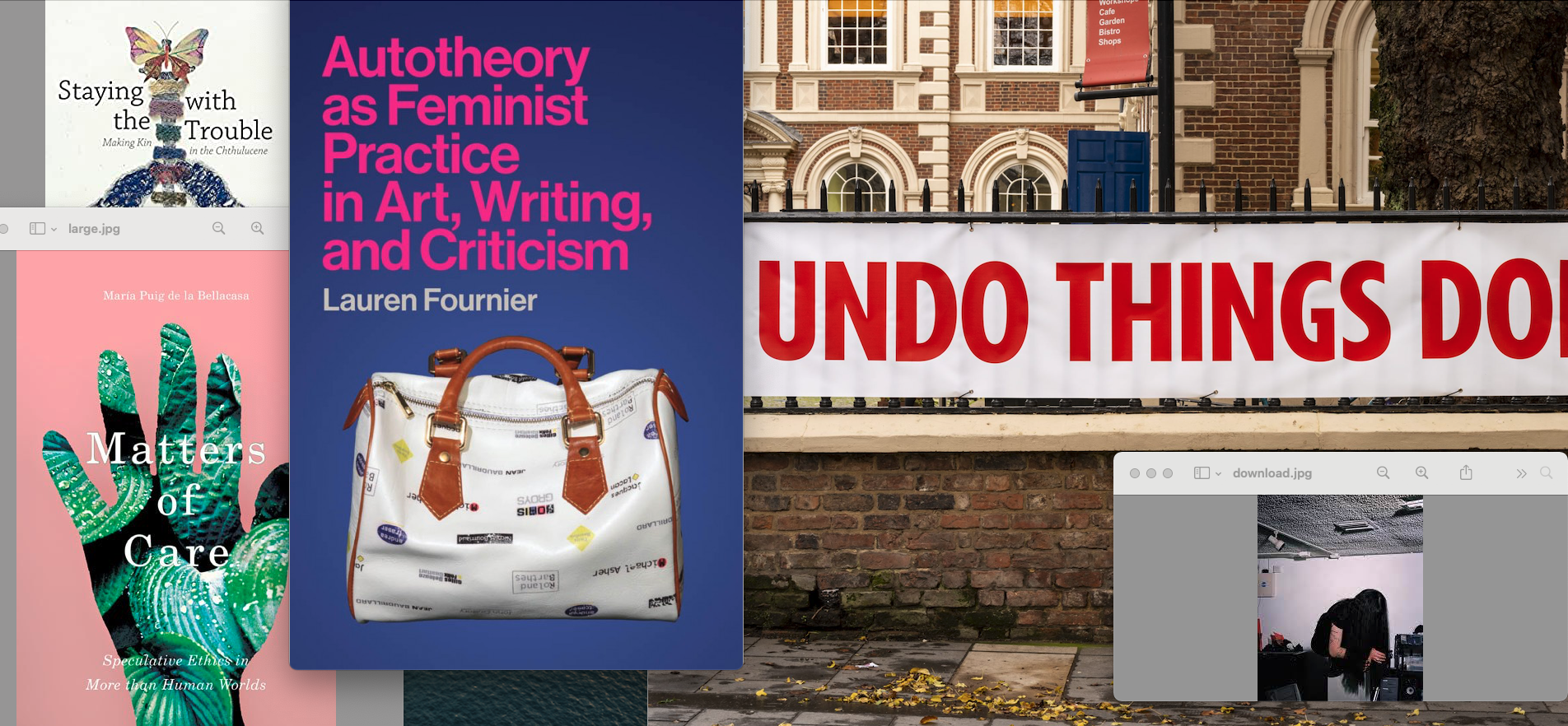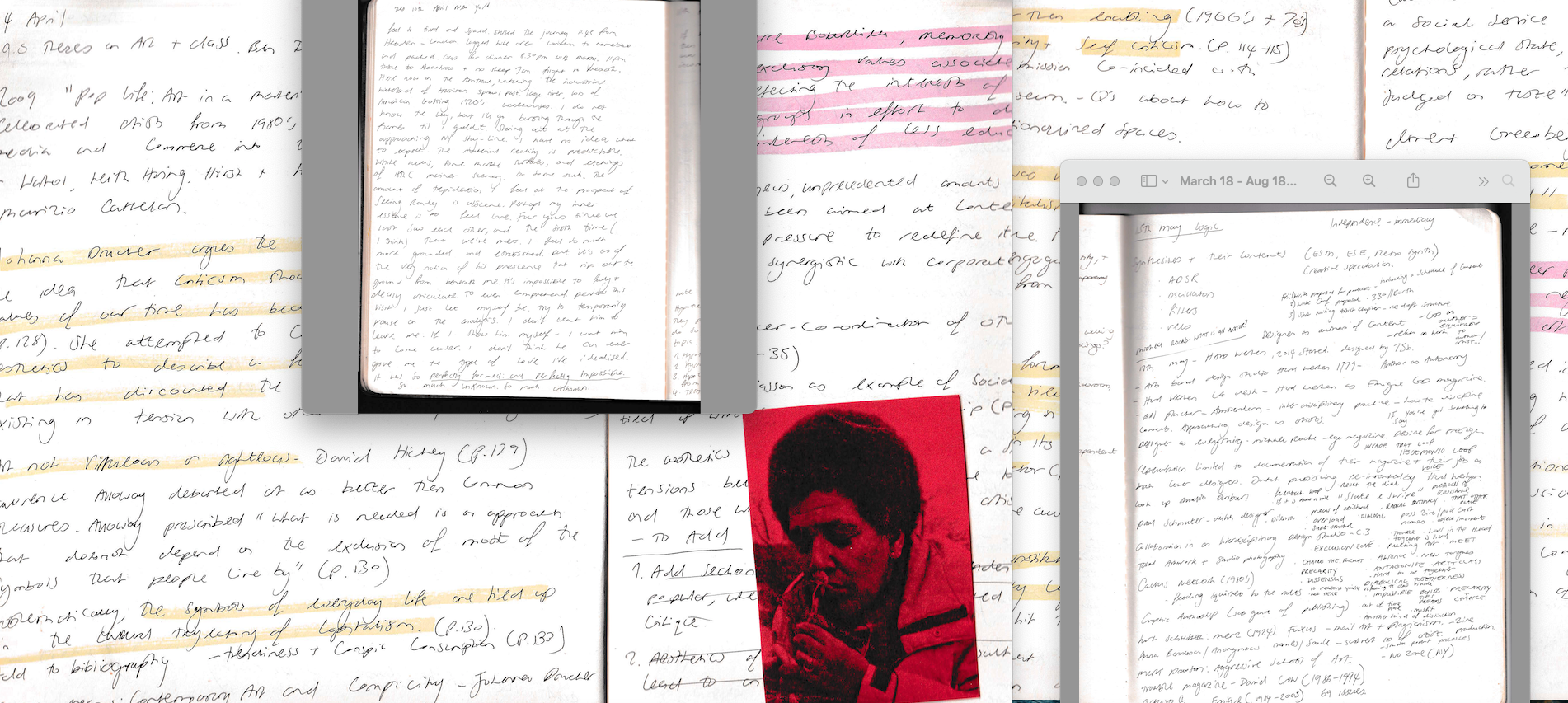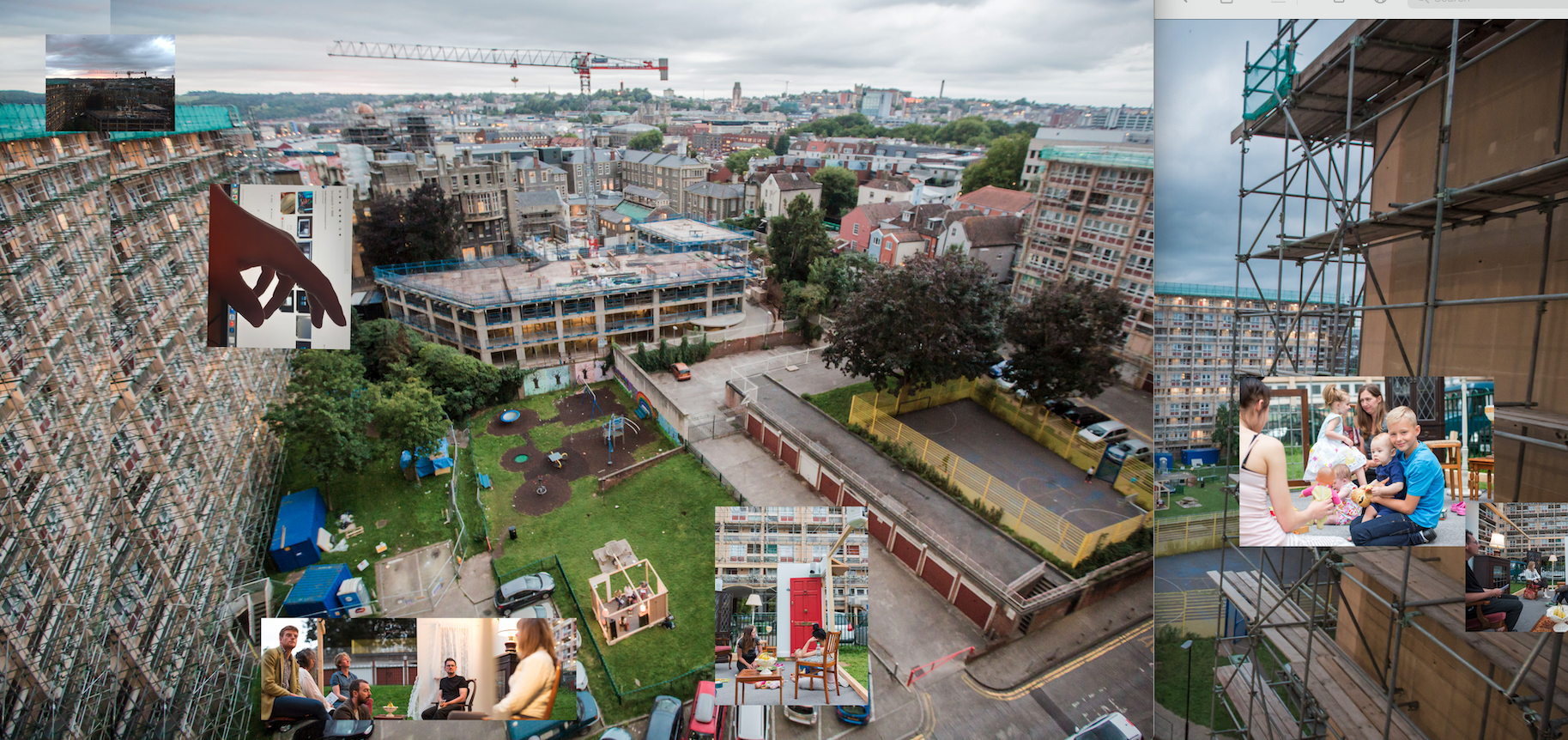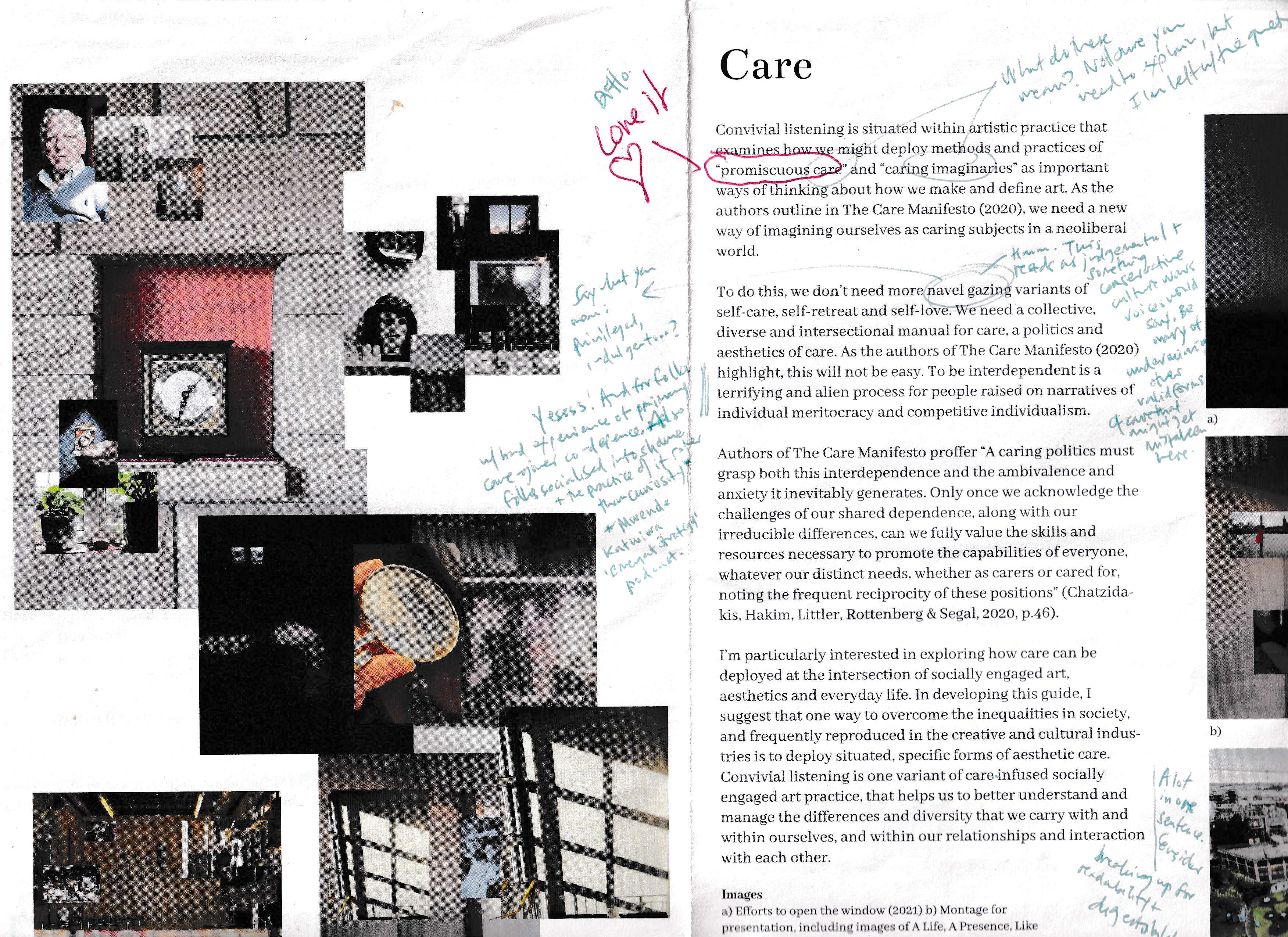C1 Images
![]()
![]()
![]()
![]()
![]()





Notes
1 Caring to Listen talk at The Pervasive Media Studio 2021
2 Portfolio of Practice
3 Written Thesis
1 Caring to Listen talk at The Pervasive Media Studio 2021
2 Portfolio of Practice
3 Written Thesis
(1)Caring to Listen
︎ Prev Index︎ Next ︎
This PhD journey has taken seven years (2015 - 2022). I completed this body of praxis, alongside working 4 days a week, living in over nine different rented houses / chalets / warehouses / boats. I’m the first person in my family to get a PhD. I don’t know if I will ever write an essay longer than 1,000 words ever again.
In Caring to Listen, I examine how working-class backgrounds shape experiences of success when working as a socially engaged artist in the UK. This research is important, because until experiences of class inequality are better understood in relation to the working conditions and cultures of socially engaged art, the social turn cannot claim to be inclusive or ameliorative. Without evidencing how inequality in socially engaged art practices is understood and addressed, the socially engaged art sector (and creative industries at large) risk making minor adjustments to the capitalist status quo.
To undertake this praxis, I developed and deployed a practice as research methodology. Specifically, the dynamic praxis system. Academic findings arising from my praxis, evidence a paucity of research quantifying and analysing the experiences of working-class artists involved with producing contemporary socially engaged art.
This represents a crisis of knowledge in terms of understanding how class background determines creative ideation and access to employment and validation when working as a socially engaged artist. More research is needed to understand the causes, scale, and experiences of multi-ethnic working-class people, involved with the production socially engaged art (and artistic practice at large) today.
Responding to these knowledge gaps, I’ve developed artistic research processes, including The Convivial Listening Protocol; a new practice as research method that uses listening and privilege mapping activities to better understand how class origin shapes creative aspirations and experiences of people working as socially engaged artists.
Findings arising from Caring to Listen will be of interest to socially engaged artists and academics researching inequality in the field of socially engaged arts and the creative and cultural industries. Further, this praxis will be of use to scholars and artists examining how theories and practices of listening and care can facilitate candid conversations and action on pervasive intersectional class inequality. A structural problem endemic to the arts, and society at large.
Props to my supervisory team, friends and family. Many thanks to conference organisers and audiences, where I’ve had the chance to develop and get feedback on my thinking.
︎ Prev Index︎ Next ︎